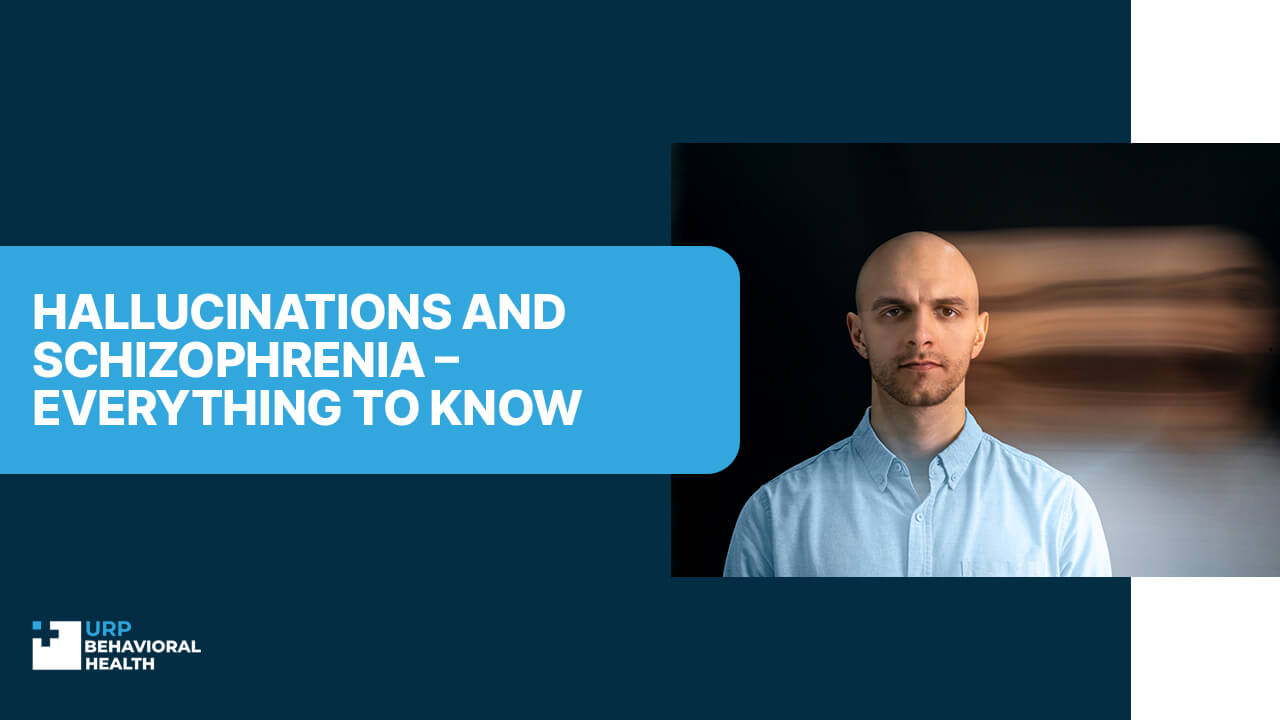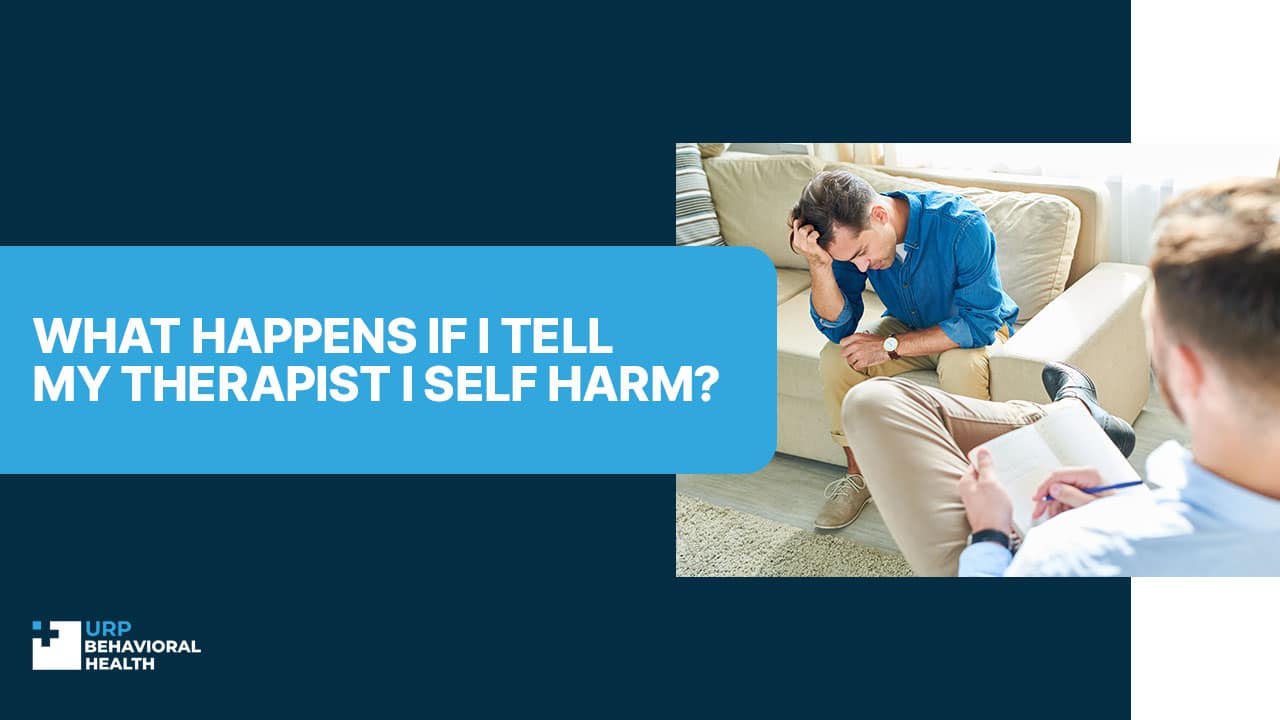
Hallucinations and Schizophrenia
The connection between hallucinations and schizophrenia is critical for understanding how to deliver care and support to those with this underlying mental illness. Schizophrenia is commonly associated with hallucinations, which can significantly impact one’s life, particularly if experiencing them frequently. Hallucinations can be various in nature, with varying levels of severity and causes. These experiences are discussed, and there are resources and strategies for managing and treating them. Understanding these facets can aid caregivers and healthcare professionals in developing more effective support systems and interventions, leading to research findings that can enhance understanding.
What are Hallucinations in Schizophrenia?
Hallucinations are sensory perceptions that appear to be genuine but are actually created by the mind, referred to as hallucinations. Schizophrenia in clinical practice often results in hallucinations that dispense information that does not exist from the human senses, such as the right and left. Schizophrenia is often associated with hallucinations that are a clear indication of the disorder’s nature, and they can be distressing and disorienting to the individual. Hallucinations can be varied in frequency and intensity, and they frequently contribute to the disorder’s gravitational intensification. Understanding the nature and impact of these hallucinations is key to developing effective treatments and support strategies for individuals with schizophrenia [1][2][3].
Don’t wait - confidential help is available right now for you or your loved one.
Does Schizophrenia Cause Hallucinations?
Schizophrenia’s development is also influenced by hallucinations, which are closely linked to the disorder. Sensory information is misinterpreted by the brain and reconstructed as false perceptions, leading to the misrepresentation of its actual value in the brain. Schizophrenia is commonly accompanied by hallucinations that are necessary for identifying and understanding the disorder and facilitating diagnosis. The neurological basis of schizophrenia can inform treatment and management strategies if symptoms are present in any manner of neurologically amenable or me amenable to standard sleep disorder symptoms. Research has shown that abnormalities in certain brain regions and neurotransmitter systems contribute to the occurrence of hallucinations in schizophrenia, emphasizing the need for a comprehensive approach to treatment [1].
Common Schizophrenia Hallucinations
Visual Hallucinations
Visual hallucinations are the physical appearance of something, and they can cause visual effects such as trespassing. From simple designs or lights to complex images, such as people or objects, these can present a wide range of possibilities. Schizophrenia associated visual hallucinations can be especially unpleasant, and can negatively impact an individual’s social functioning or ability to function in the home. Some people with schizophrenia experience additional distress due to hallucinations that are vivid and realism, adding to the convincing quality of the vivid hallucinations.
These visual experiences can be fleeting or persistent and may vary in complexity and clarity. Understanding the specific nature of visual hallucinations can help in tailoring interventions to manage these symptoms effectively [2].
Auditory Hallucinations
Schizophrenia is most often accompanied by auditory hallucinations, which are a type of hallucination that is atypical and most frequently seen in schizophrenia. By perceiving sounds or voices, they are able to hear things that they cannot directly identify. Voices that are significant in their euphoric, menacing, or commanding nature can cause significant disruptions in the individual’s emotional state and conduct. Schizophrenia’s auditory hallucinations, which can cause considerable distress and disruption in daily activities, often require careful management and support, and need to be carefully managed when possible. Their voice is capable of changing both content and tone considerably, and they can connect with the individual’s thoughts and feelings, making the experience more complex.
Effective auditory management strategies, which involve cognitive-behavioral therapy and supportive counseling, can effectively manage auditory hallucinations through cognitive-behavioral therapy. [3].
Olfactory Hallucinations
Olfactory hallucinations are symptoms of experiencing a sensual odor due to the perception of noxious fumes that are not actually present in the air. Schizophrenia, a frequently diagnosed mental illness, causes severe and unpleasant hallucinations triggered by specific scents, which make it more challenging to manage and cope with due to the heightened sense of smell. The causation of hallucination is a result of hallucinations, which can lead to decreased eating and social interaction, resulting in individual isolating habits and hallucinations. Throughout the individual, the aroma of a person’s odors varies significantly, encompassing various pleasant tonger smells, as well as unpleasant and unpleasant ones that can have a profound effect on their well-being and relationships with others. Addressing olfactory hallucinations often requires a combination of medical and therapeutic interventions to help individuals cope with these intrusive sensory experiences [2].
Tactile Hallucinations
When the brain perceives sensations on the skin that are not actually there, like tingling or feeling pressure, or other sensations that are not identified as tangible or perceived, they are referred to as tactile hallucinations, or tactile hallucinations, by the therapist. Schizophrenia’s capacity to distinguish between actual and imaginary sensations through tactile hallucinations can cause significant agony and confusion, as tactile hallucinations can be painful and confusing. Hallucinations of this sort can result in difficult behaviors that may require intensive help in managing them. The sensations may be restricted to specific areas of the body, be chronic, or last for a few hours, and may manifest as specific or persistent feelings. Understanding the triggers and underlying mechanisms of tactile hallucinations is essential for developing effective management and support strategies for affected individuals [3].
Reach out today and let us create a treatment plan designed around your needs.
What Causes Hallucinations?
It is believed that a combination of genetic, neurological, and environmental factors may cause hallucinations in schizophrenia, although the precise cause remains unknown. Abnormal brain chemicals like dopamine and serotonin are regarded as important factors that contribute to high levels. Additionally, stress, trauma, and substance abuse can play a significant role in triggering or worsening hallucinations. Treatment plans that address both symptoms and underlying causes will be affected more closely if individuals identify these factors as involved in a patient experience. Ongoing research is focused on pinpointing more specific mechanisms and treatments to better understand and manage the complex interactions that contribute to these experiences. A holistic treatment plan that caters to individual needs and backgrounds to the fullest extent is essential. [1][2].
Does Schizophrenia Always Have Hallucinations?
Not everyone with schizophrenia experiences hallucinations. While they are common, some individuals may primarily experience delusions, disorganized thinking, or other symptoms. The variation observed within the disorder highlights the significance of individualized treatment plans. Accurate diagnosis and treatment for schizophrenia in various forms necessitates knowledge of the variety of schizophrenia forms that the condition can manifest in different ways. Hallucinations may influence the choice of cures and the management of the disease, whether with or without these substances. Healthcare providers can provide individuals with schizophrenia with tailored care by identifying the full range of symptoms. [3].
Can You Have Schizophrenia Without Hallucinations?
Schizophrenia can be present without hallucinations and not be a consequence. Schizophrenia is a form of a disorder that falls within the more widely known spectrum disorder Schizophrenia can manifest itself in many ways, but not all individuals will experience the same symptoms. There are cases where people experience significant hallucinations or disorganized thinking, not hallucinations, in some cases. Accurate diagnosis and treatment depend on understanding this variability, which is essential for understanding treatment. Healthcare providers should take into account the complete spectrum of schizophrenia symptoms when designing treatment plans, even if only a small percentage of the disorder is present, such as hallucinations. The focus of comprehensive care should be on meeting the individual needs and challenges of each person with schizophrenia, rather than solely relying on comprehensive care as it addresses all aspects of their condition. [1].
Schizophrenia Hallucinations Treatment
Schizophrenia, the most severe mental illness, causes hallucinations, and treatment involves therapy, medication, and ongoing support, all working to manage and regulate these symptoms. Working with a doctor or other health care provider in private is crucial to develop a customized treatment plan for you, which is often highly confidential. Individuals can receive guidance on managing symptoms and stress management from Therapy, while their support system provides a sense of camaraderie and encouragement.
The early intervention phase can improve long-term outcomes in managing schizophrenia, particularly when dealing with hallucinations, by promoting early intervention. It is recommended that you seek professional medical assistance without delay or withholding any information. Maintaining a well-balanced diet, engaging in physical activity, and getting enough sleep can enhance symptom management and overall health, alongside medical intervention, by influencing lifestyle changes such as elevated blood levels and improved sleep equivalence. These modifications are vital in facilitating better mental and physical health, making them crucial. [2].
How to Help Someone with Schizophrenia Hallucinations
Supporting someone with schizophrenia hallucinations involves patience, understanding, and practical assistance. Here are some ways to help:
- Encourage them to seek professional help and follow their treatment plan.
- Create a calm and safe environment for them.
- Help identify and avoid things that may trigger or worsen their hallucinations.
- Learn about schizophrenia to offer better support.
- Support healthy habits like exercise and eating well.
- Assist with everyday tasks and offer emotional support to reduce anxiety.
- Be patient—don’t argue about their hallucinations, but provide comfort and reassurance.
- Help them stay socially connected through activities or support groups to reduce isolation.
Conclusion
Schizophrenia resulting in hallucinations, a central symptom that can profoundly influence one’s daily life, is an important warning sign of the condition. Understanding their causes, how to control them, and determining their needs is crucial for providing appropriate support. Looking for professional help is the best option if you or someone you know is in need. Schizophrenia can be overcome and lead to better lives for many individuals through therapy, medication, and ongoing care. [2][3].
Our team will verify your insurance and design a plan tailored to your needs.
Sources
- [1] “Hallucinations in schizophrenia: prevalence, mechanisms, and treatment”. https://pubmed.ncbi.nlm.nih.gov/16035402/
- [2] “Neurobiological mechanisms underlying auditory hallucinations in schizophrenia”. https://pubmed.ncbi.nlm.nih.gov/37024418/
- [3] “The impact of olfactory hallucinations in schizophrenia”. https://pubmed.ncbi.nlm.nih.gov/2399817/
















